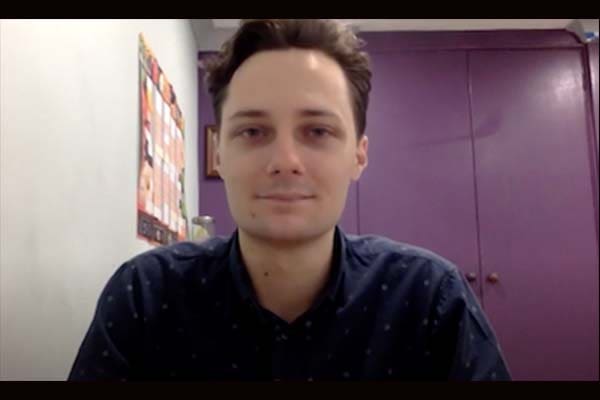Slogan: ‘A USU for All’
Colour: Purple
Faction: Independent (Labor)
Quiz score: 0%
Housewives tagline: “People get exhausted trying to figure me out. And I just let them.”
Eitan Harris is a bit of a wild card entry. He’s a member of the Labor Party, and defines himself as centre left, but has in the past campaigned for Vision (Libdependents), Georg Tamm (Unity) and Reboot (Unity/NLS). Despite his lengthy experience in student politics, Harris doesn’t have a campaign manager — he believes he’s better positioned to manage himself as an independent candidate.
Harris’ policies differ quite substantially from the other candidates, which could help him stand out, but many are vaguely articulated, and he seems quite unaware of the implications of some of them. In particular, his policy about “combating racism on campus by allowing those experiencing racism to define their own experience” is based on the compilation of a list of ethnic slurs, stereotypes and derogatory comments. Though well-intentioned, it’s easy to see how a public list of slurs maintained by the USU might go awry. Though he is aware of the campus free speech discussion, he also doesn’t seem to comprehend how it will complicate his proposed database of slurs.
Eitan is proposing the introduction of several autonomous disability spaces. This is an admirable proposition, and an unlikely one, given that the USU has nominally been working toward a dedicated space for at least a year with little success. He is also proposing the introduction of a USU disability collective, but failed to explain how it would functionally differ from the existing SRC collective of the same purpose, save for the fact that the USU and SRC have different political approaches. He declined to take part in the Honi quiz, citing accessibility concerns. Nonetheless, the impracticality of many of his policies points to a general lack of understanding of the way the USU operates.
Harris is aware of structural issues of discrimination within the University, but he doesn’t have a strategy for resolving them. Aside from the database, and disability spaces, his policies comprise of listening to disadvantaged groups and very little else. He is distinguished from past and present candidates by his explicit focus on disability rights and advocacy, but this is let down by his failure to provide any meaningful policies beyond unlikely band aid solutions. Harris will need more than good intentions to effectively represent the groups he seeks to empower to the USU.
A link to the full transcript of the interview can be found here.





